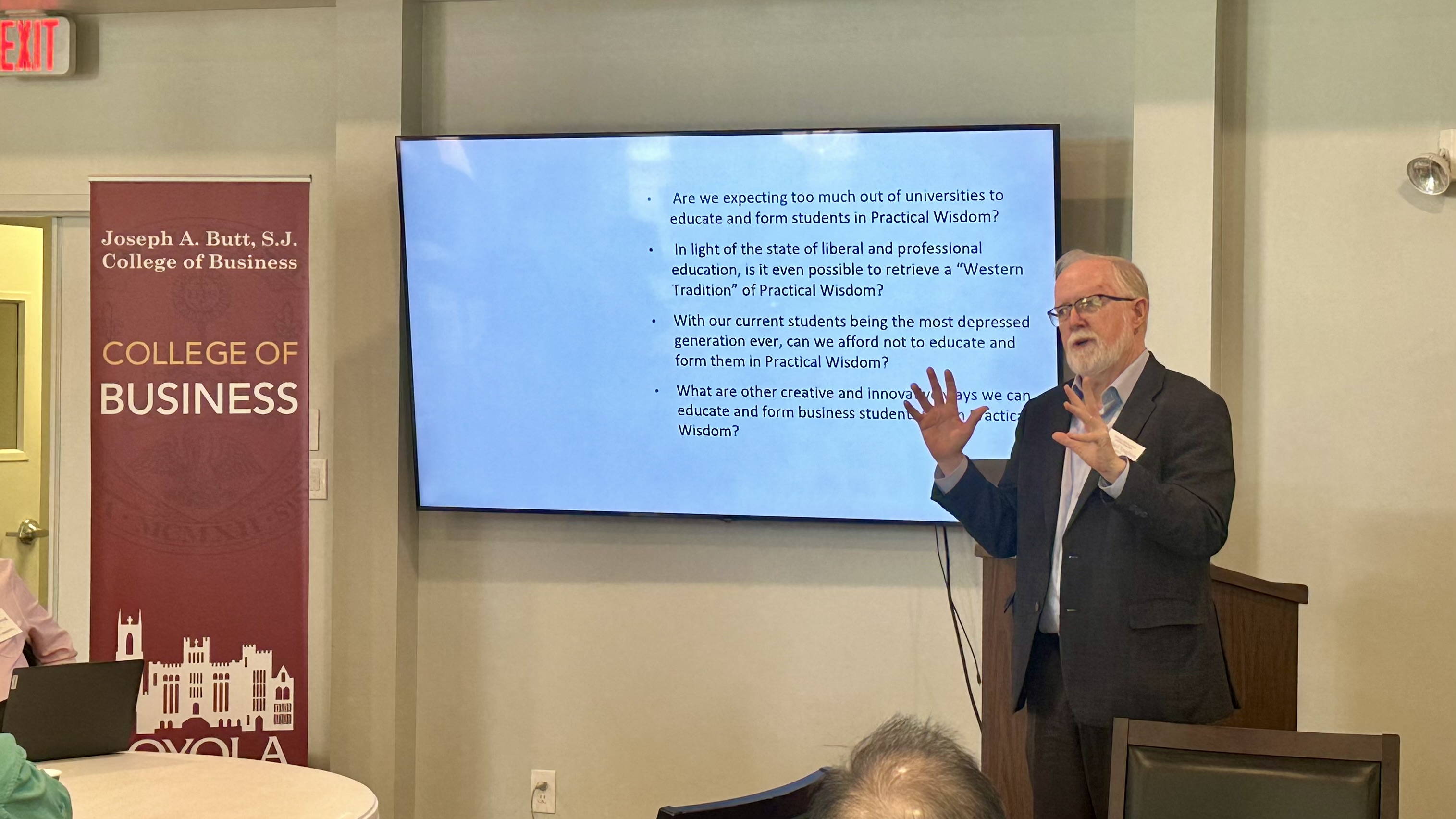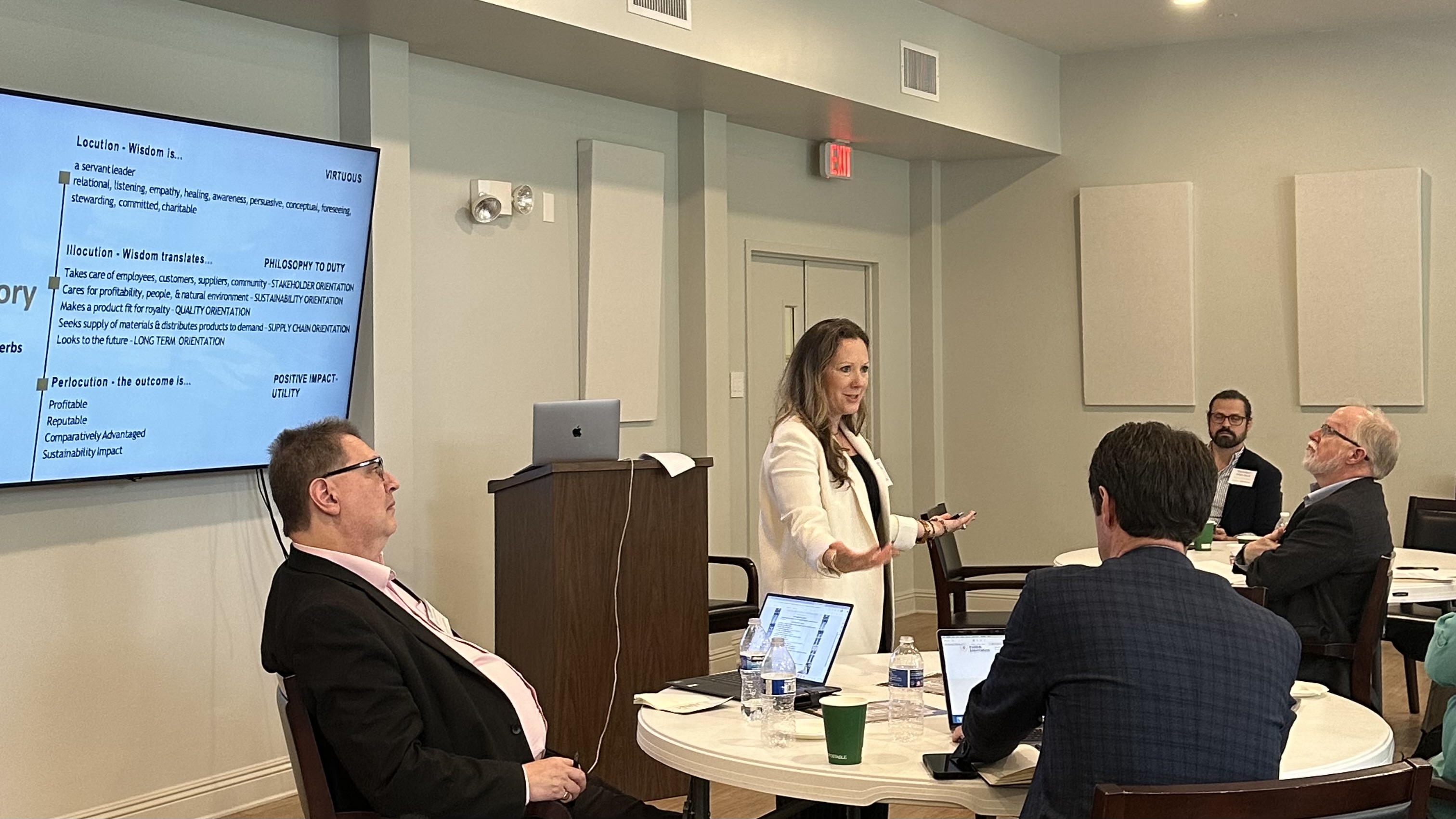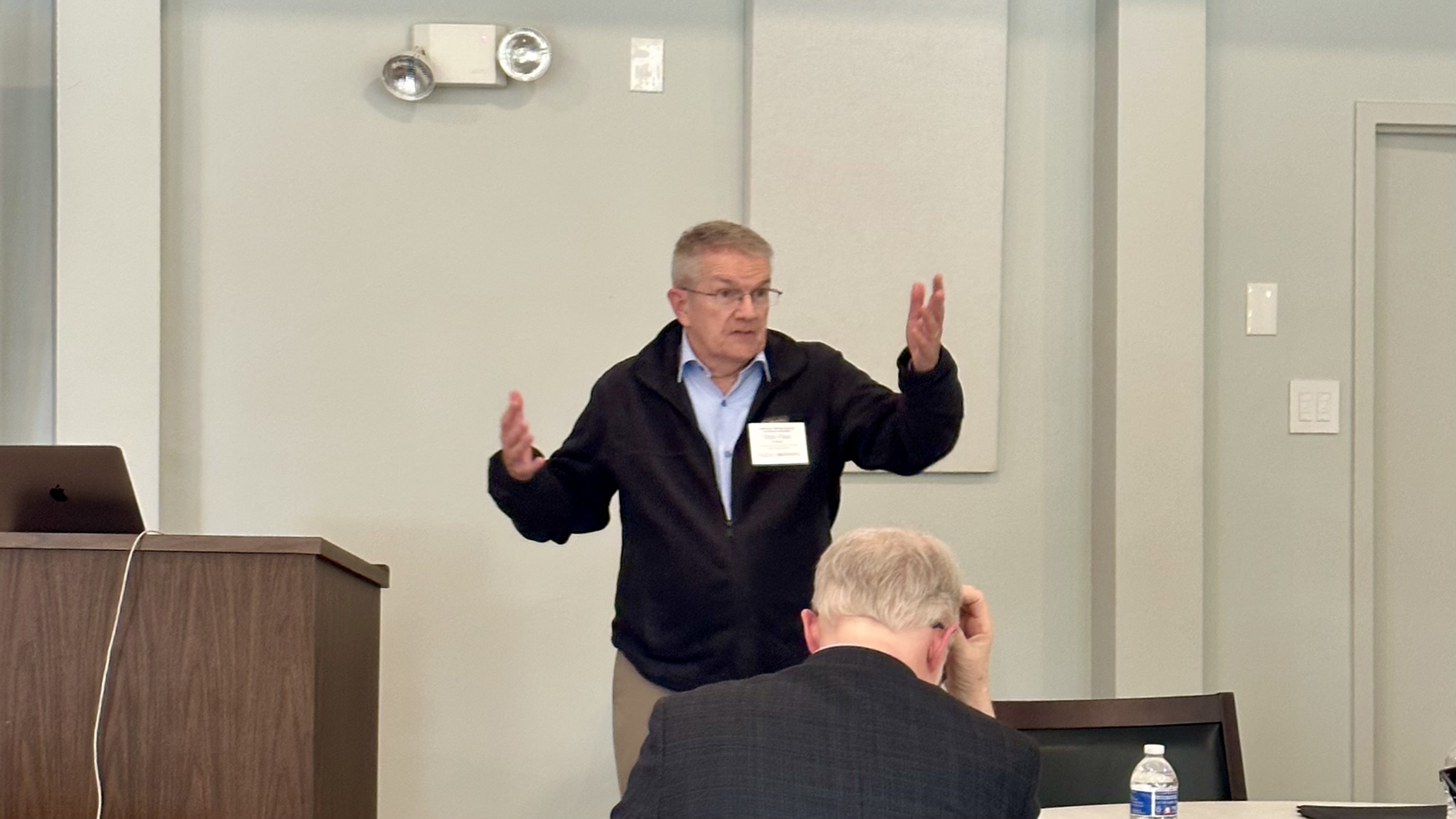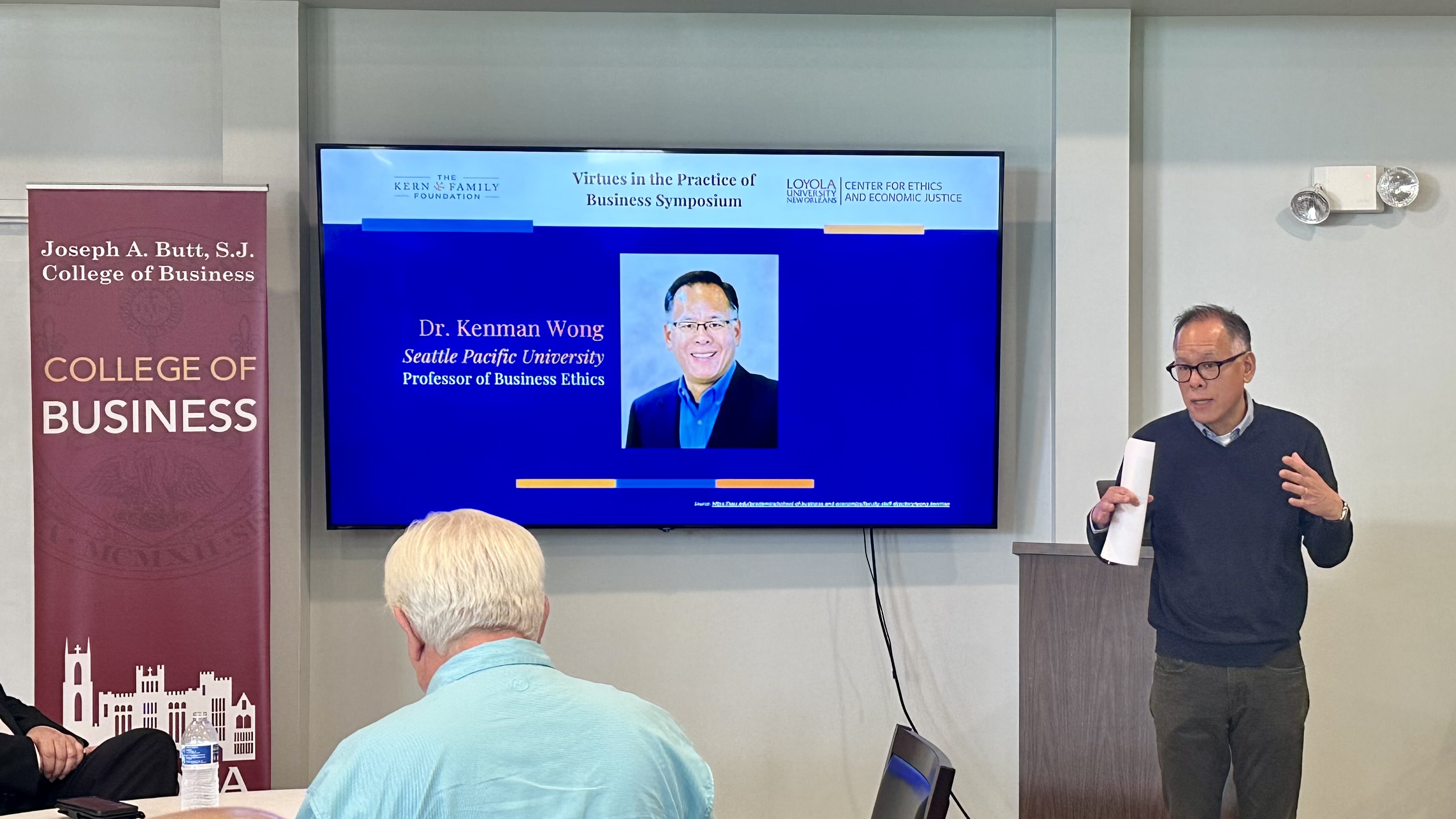
Center for Ethics and Economic Justice Hosts "Virtues in the Practice of Business" Symposium
On October 26-28, the Center for Ethics and Economic Justice hosted nearly two dozen scholars from around the country for an invite-only symposium on virtue in the practice of business.
Co-sponsored by the Center for Faithful Business at Seattle Pacific University and the Kern Family Foundation, the symposium was interdisciplinary and ecumenical, laying the groundwork for future collaboration among humanities and business scholars from different faith traditions.

Dr. Michael Naughton, Director of the Center for Catholic Studies at the University of St. Thomas and Chairman of the Board at Reell Precision Manufacturing Co, opened the event with a lecture on education for practical wisdom. While there too often are tensions and rivalries between the humanities and professional schools, Naughton argued that they are not only compatible but complementary: A true liberal education offers a holistic understanding of human nature and its flourishing, while a business education illuminates particular institutions and methods to attain the goods and services which contribute to our wellbeing. When we rightly see the relationship of general principles to particular ends, and judge the goods of business in relation to the common good, we as faculty and administrators can act rightly to form students' hearts as well as minds to be receptive to wisdom.

Hannah Stolze, Inaugural William E. Crenshaw Endowed Chair in Supply Chain Management at Baylor University, turned to scriptural wisdom literature as a source of insight for managers. Stolze drew parallels between the "noble woman" who "girds herself with strength" and prudently runs her household with the strategic orientations necessary for sustainable operational excellence. Done for the right reasons and in the right way, strategic decision-making in ordering the firm can be an aspect of the virtue of prudence, which in turn is an imitation of and even participation in the wisdom of Divine Providence.

Daniel K. Finn, Professor of Theology and Clemens Professor of Economics at St. John’s University and the College of St. Benedict, discussed the relationship of virtue, trust, and moral agency in business. Drawing on the sociological school of critical realism, Finn explained the social structures which incentivize or impede virtuous behavior in business. An essential issue is whether the firm is organized to reward reciprocity and trust among its employees, or to exploit them. While short-term profits may be made by manipulating and abusing trust, in the long run the social capital of a firm relies on relationships of trust among its stakeholders, and excellence cannot be sustained without structures to promote trustworthy behavior.

Finally, Seattle Pacific University professor of Business Ethics, Kenman Wong, who holds an MBA as well as a humanities Ph.D., critiqued the use of virtue theory in business from a theological standpoint. In seeking to be practical and relevant, business ethics risks becoming conventional and utilitarian, shying away from offering criticisms which would require too much change. Especially in discussion of the virtues, this risks that good behavior will be reduced to useful behavior, whether that is measured in terms of what will maximize profits or what will maximize the individual's self-oriented goals. In order to prevent the language of the virtues from being co-opted into a justification for the status quo, virtues must be directed towards transcendent ends. While there are secular analogues for concepts such as the common good, vocation, and charity, an expressly theological perspective can open a transformative vision for the practice of business, as seen in the example of San Francisco-based software company Dayspring.
These talks, which opened up broad conversations and multiple pathways for continuing research, will be revised into four journal articles to be published as a Symposium feature in Christian Scholar’s Review. As part of the Center for Ethics and Economic Justice’s ongoing efforts to promote academic reflection on the practice of business which is both substantive and relevant, this event contributed to raising the profile of the College of Business at Loyola University New Orleans as a locus for ethical formation in the Ignatian tradition. The symposium deepened our relationships with and opened further possibilities for collaboration with leaders in the field such as the Center for Faithful Business at Seattle Pacific University and the Ryan Institute for Catholic Social Thought at the University of St. Thomas.